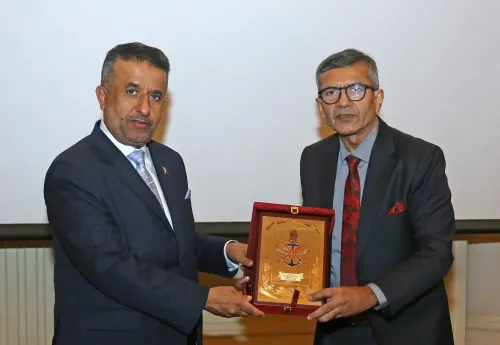How Are the New Labour Codes Transforming India's Workforce?

Synopsis
Key Takeaways
- Time-bound minimum wage guarantees for workers.
- Enhanced social security for over 400 million workers.
- Inclusion of PF and gratuity in the CTC framework.
- Provisions for women’s safety and workplace equality.
- Double wages for overtime and health checkups for workers over 40.
New Delhi, Nov 24 (NationPress) The Air India Aircraft Engineers Association on Monday praised the new Labour Codes as a “bold, revolutionary and historic” achievement for India’s workforce, asserting that these reforms will greatly enhance workers' welfare and social security.
General Secretary S.N. Bhatt emphasized to IANS that the assurance of a time-bound minimum wage, a more robust basic salary structure, and the inclusion of PF and gratuity within a comprehensive cost-to-company (CTC) scheme represent a significant move toward long-term financial security for employees.
Bhatt pointed out that designating 50 percent of CTC as basic pay will notably increase both provident fund contributions and gratuity payouts — a change he referred to as “a visionary decision taken by Prime Minister Narendra Modi.”
Addressing issues of women's safety and workplace equality, Bhatt stated that the new labour codes guarantee equal pay for equal work and strictly prohibit gender discrimination. He dismissed misconceptions regarding night-shift rules, clarifying that the law necessitates explicit consent from women employees and demands strong safety measures from employers.
The union leader also welcomed the government's initiative to extend social security benefits to over 400 million workers, including gig workers, platform workers, and those in the unorganised sector. “This reflects the Prime Minister’s commitment to worker dignity,” he added.
Bhatt highlighted provisions such as double wages for overtime, complimentary annual health checkups for workers over 40, and the possibility of a four-day work week with 12-hour shifts as initiatives that clearly prioritize worker welfare and quality of life.
The Union Government has introduced four new labour codes — the Code on Wages (2019), Industrial Relations Code (2020), Code on Social Security (2020), and the Occupational Safety, Health and Working Conditions Code (2020).
These reforms replace 29 previous labour laws with a unified and simplified legal structure aimed at enhancing compliance ease and strengthening worker rights.









